A Guest Post by Karen Pellett
Our view of events in stories, and in real life, is frequently tainted by our past and emotions. Two individuals who have similar stories will react to another person’s actions differently based on their personalities and personal experiences. Thus, giving our history the ability to become metaphorical sunglasses, tinting the truth of what is before us. And, because of this, allows the main character’s “enemy” to fool easier through the power of incomplete truths.
In the sixth Star Wars movie, Return of the Jedi, when Luke Skywalker returns to Dagobah to finish training, only to find that is mentor, Yoda, is dying. Afterwards Luke has a heart-to-heart with the ghost of Obi-Wan Kenobi. “Your father… was seduced by the Dark Side of the Force. He ceased to be the Jedi Anakin Skywalker and “became” Darth Vader. When that happened, the good man who was your father was destroyed. So, what I told you was true… from a certain point of view.”
That revelation was a prime example of incomplete truth—once the knowledge became apparent to the main character, their perception becomes completely altered as they are forced to re-evaluate their beliefs. Darth Vader was a bad guy, plain and simple. But learning that Darth Vader was once Anakin Skywalker, someone’s husband and father, changes Luke’s reality. He was forced to re-evaluate the truth that he thought he knew.
Throughout the Harry Potter series, Harry has a distinctive personal enmity toward the Potion’s Master, Severus Snape. J.K. Rowling gives the reader permission, from the start of the series, to despise Severus Snape. For one, he had the gall to despise Harry’s father (James Potter). Secondly, Snape openly showed hostility toward the chosen one (it didn’t matter that Harry never wanted to be the chosen one). Only at the conclusion of the final book/movie, after Snape is killed by Nagini, does Harry learn that his emotions and past tinted everything he thought was true. Only then is Harry forced to re-evaluate everything he thought was real. Only then does he see the sacrifice and honor of a once hated man, turning Snape into an individual that Harry admired enough to give one of his sons the name Albus Severus Potter.
Other examples of incomplete truths include the M. Night Shyamalan movies The Sixth Sense and Unbreakable where we view the story from the incomplete truth of the main character’s lives. It is only in the end that we are given the lens of truth, revealing the stories from a whole other angle giving the characters, and the viewers, a complete mind-flip moment.
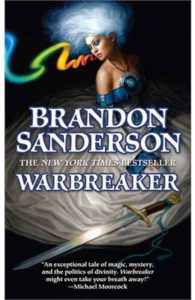 Incomplete truths often tend to be blessed happenstance on the part of the author/creator, but if done well can come across brilliantly. If done poorly, can cost you your reader’s faith & trust. The true brilliance is when an author is skilled enough that they plan out the incomplete truths or omissions from the start. This is why I love the work of Brandon Sanderson. The story Warbreaker is told from the point of view of two Idrian princesses—Vivenna and Siri. At the beginning of the story, the princesses’ planned futures are switched, pulling the proverbial rug out from under the feet. Siri is sent to marry the God King while Vivenna is left feeling lost. Taking matters in hand, Vivenna decides to be the heroine of her own story, and marches off on her own to rescue Siri from the horrible life that Vivenna was meant to live. I thought I knew where the story was headed, and I was enjoying the ride. Then, halfway through, Sanderson flipped everything that Vivenna, Siri, and even the readers, thought they knew on its head; unravelling the twisted and incomplete truths. Only later, if you go back and look, do you realize that Sanderson hints of reality scattered throughout as brilliant nuggets of creativity.
Incomplete truths often tend to be blessed happenstance on the part of the author/creator, but if done well can come across brilliantly. If done poorly, can cost you your reader’s faith & trust. The true brilliance is when an author is skilled enough that they plan out the incomplete truths or omissions from the start. This is why I love the work of Brandon Sanderson. The story Warbreaker is told from the point of view of two Idrian princesses—Vivenna and Siri. At the beginning of the story, the princesses’ planned futures are switched, pulling the proverbial rug out from under the feet. Siri is sent to marry the God King while Vivenna is left feeling lost. Taking matters in hand, Vivenna decides to be the heroine of her own story, and marches off on her own to rescue Siri from the horrible life that Vivenna was meant to live. I thought I knew where the story was headed, and I was enjoying the ride. Then, halfway through, Sanderson flipped everything that Vivenna, Siri, and even the readers, thought they knew on its head; unravelling the twisted and incomplete truths. Only later, if you go back and look, do you realize that Sanderson hints of reality scattered throughout as brilliant nuggets of creativity.
So, next time you find yourself reading or watching a story that mesmerizes you with a mind-flip moment, go back and see if you can determine for yourself—is the use of emotions and history making it easier for one character to fool another through incomplete truths? And if so, was it simply a beautiful happenstance, or was it planned brilliance on the part of the creator?
Karen Pellett is a crazy woman with a computer, and she’s not afraid to use it. Most of her time is spent between raising three overly brilliant and stinkin’ cute children, playing video games with her stepsons, and the rare peaceful moment with her husband. When opportunity provides she escapes to the alternate dimension to write fantasy & magical realism novels, the occasional short story, and essays on raising special needs children. Karen lives, plots & writes in American Fork, Utah.



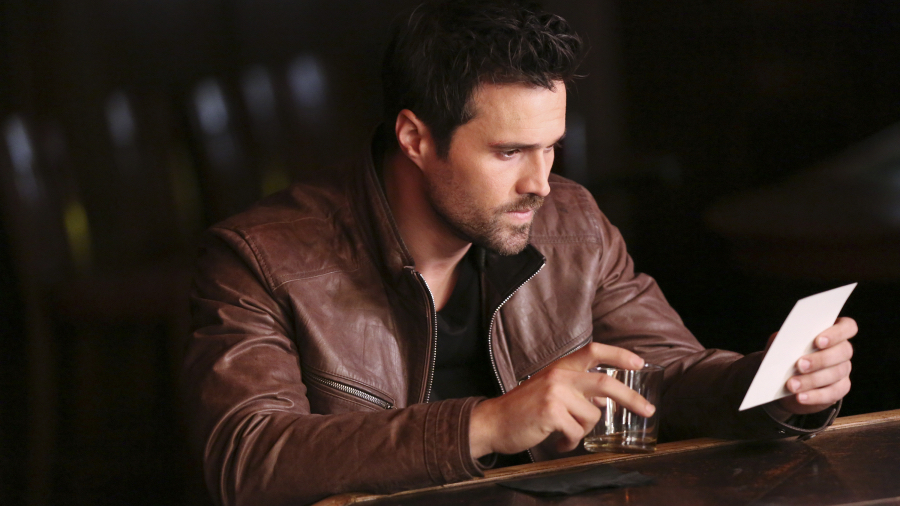 For all of you “Agents of Shield” fans, I think you’ll remember that wrench in your gut when you realized, but didn’t want to admit, that Grant Ward was Hydra. Not only was he Hydra, but he was also quite psycho. Everyone’s favorite character started betraying and killing all of his friends. Except for the recently acquired girlfriend, whom he creepily stalked.
For all of you “Agents of Shield” fans, I think you’ll remember that wrench in your gut when you realized, but didn’t want to admit, that Grant Ward was Hydra. Not only was he Hydra, but he was also quite psycho. Everyone’s favorite character started betraying and killing all of his friends. Except for the recently acquired girlfriend, whom he creepily stalked.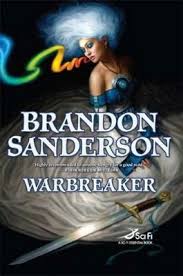 r not effect his own goals or must further them in some way. He can save his friend’s life, it can seem that it’s because he legitimately cares, and we can find out later that it was only because the backstabber needed information. Besides Grant Ward in Agents of Shield, another great example is in Brandon Sanderson’s Warbreaker. (spoiler alert) Throughout the entire novel, Siri finds in Bluefingers a confidante she can trust, until the very end when he and the Pahn Kahl people turn against her and the kingdom. He was the one person she thought she could trust and with that paradigm shift is a plot twist that changes everything.
r not effect his own goals or must further them in some way. He can save his friend’s life, it can seem that it’s because he legitimately cares, and we can find out later that it was only because the backstabber needed information. Besides Grant Ward in Agents of Shield, another great example is in Brandon Sanderson’s Warbreaker. (spoiler alert) Throughout the entire novel, Siri finds in Bluefingers a confidante she can trust, until the very end when he and the Pahn Kahl people turn against her and the kingdom. He was the one person she thought she could trust and with that paradigm shift is a plot twist that changes everything.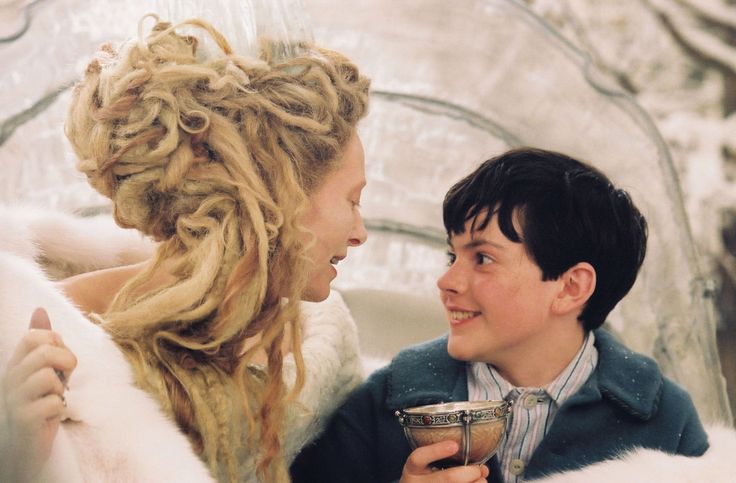 ueen in The Lion, the Witch, and the Wardrobe? We see his betrayal coming, but his poor siblings have no idea until he’s gone. We can unfold the tragedy with carefully placed clues that the reader puts together piece by piece, gradually discerning the awful news that they hate to admit may be true, like in the famed Narnia series. We can also slam the reader with the betrayal for greater impact, putting them suddenly on the edge of their seats as they wait for the protagonist to find out. Either way works and I think the best choice is whichever one fits with the flavor of your book. Is it wrought with mystery so the betrayal is one of many factors or is it a book of many twists, turns, and tragedies where this can be one more layer on the cake?
ueen in The Lion, the Witch, and the Wardrobe? We see his betrayal coming, but his poor siblings have no idea until he’s gone. We can unfold the tragedy with carefully placed clues that the reader puts together piece by piece, gradually discerning the awful news that they hate to admit may be true, like in the famed Narnia series. We can also slam the reader with the betrayal for greater impact, putting them suddenly on the edge of their seats as they wait for the protagonist to find out. Either way works and I think the best choice is whichever one fits with the flavor of your book. Is it wrought with mystery so the betrayal is one of many factors or is it a book of many twists, turns, and tragedies where this can be one more layer on the cake?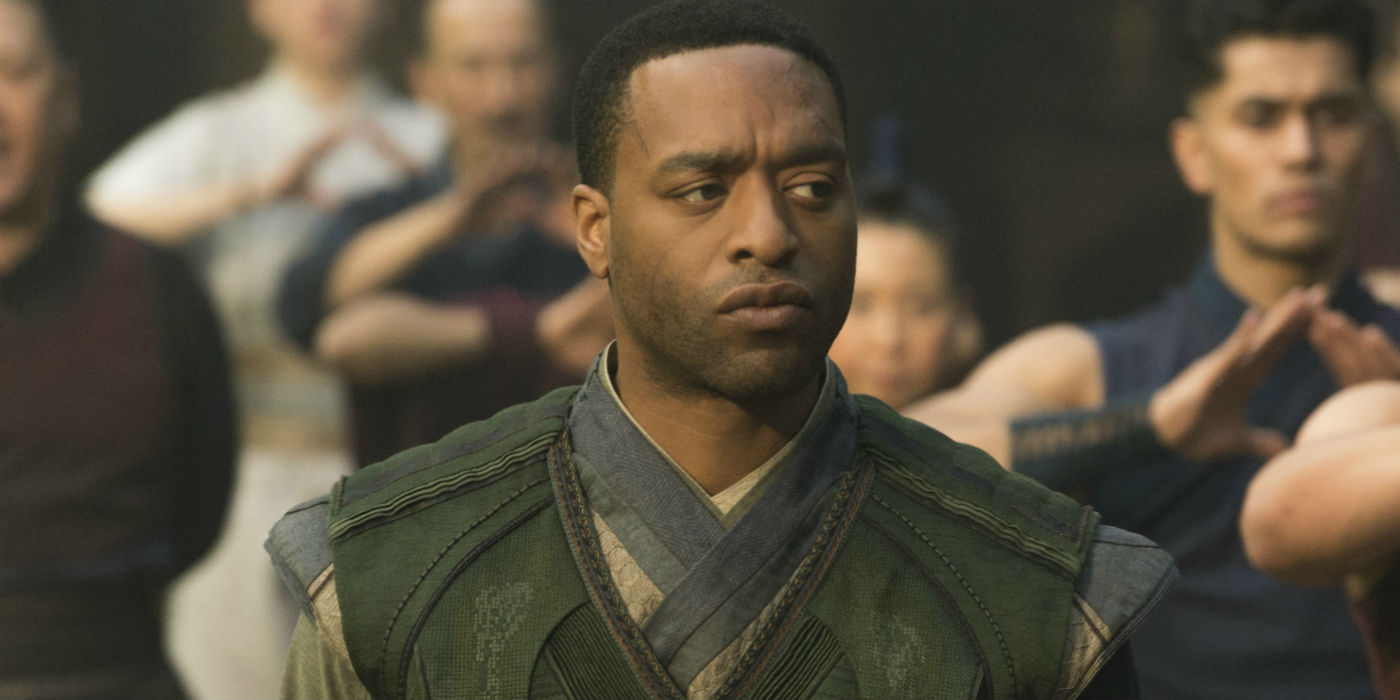 es for him. Mordo’s negative reaction when he discovers their leader has been using forbidden magic all along is a sign that not all is well. Mordo seems to come around, helping Doctor Strange save the world, and it’s not certain what Mordo will do until the moment comes. Even Mordo doesn’t seem certain what he’ll do. And then he turns his back on his friends and becomes the next super-villain. If we hadn’t already known that Anakin becomes Darth Vader, we might have been on the edge of our seats wondering if he’d really turn to the dark side or come to his senses. Because we do know, it becomes an example for the scenario above. We know it will happen, but how and when is the question. I think the unsure betrayer is one of the most compelling and heart-wrenching scenarios in fiction. It gives our protagonist’s friend a great sense of depth as they struggle with the decision. This one is also hard to pull off well, because we must show those forces of good and evil push and pull in a side character while still keeping the protagonist as the focus. Done well, it’s quite powerful.
es for him. Mordo’s negative reaction when he discovers their leader has been using forbidden magic all along is a sign that not all is well. Mordo seems to come around, helping Doctor Strange save the world, and it’s not certain what Mordo will do until the moment comes. Even Mordo doesn’t seem certain what he’ll do. And then he turns his back on his friends and becomes the next super-villain. If we hadn’t already known that Anakin becomes Darth Vader, we might have been on the edge of our seats wondering if he’d really turn to the dark side or come to his senses. Because we do know, it becomes an example for the scenario above. We know it will happen, but how and when is the question. I think the unsure betrayer is one of the most compelling and heart-wrenching scenarios in fiction. It gives our protagonist’s friend a great sense of depth as they struggle with the decision. This one is also hard to pull off well, because we must show those forces of good and evil push and pull in a side character while still keeping the protagonist as the focus. Done well, it’s quite powerful.